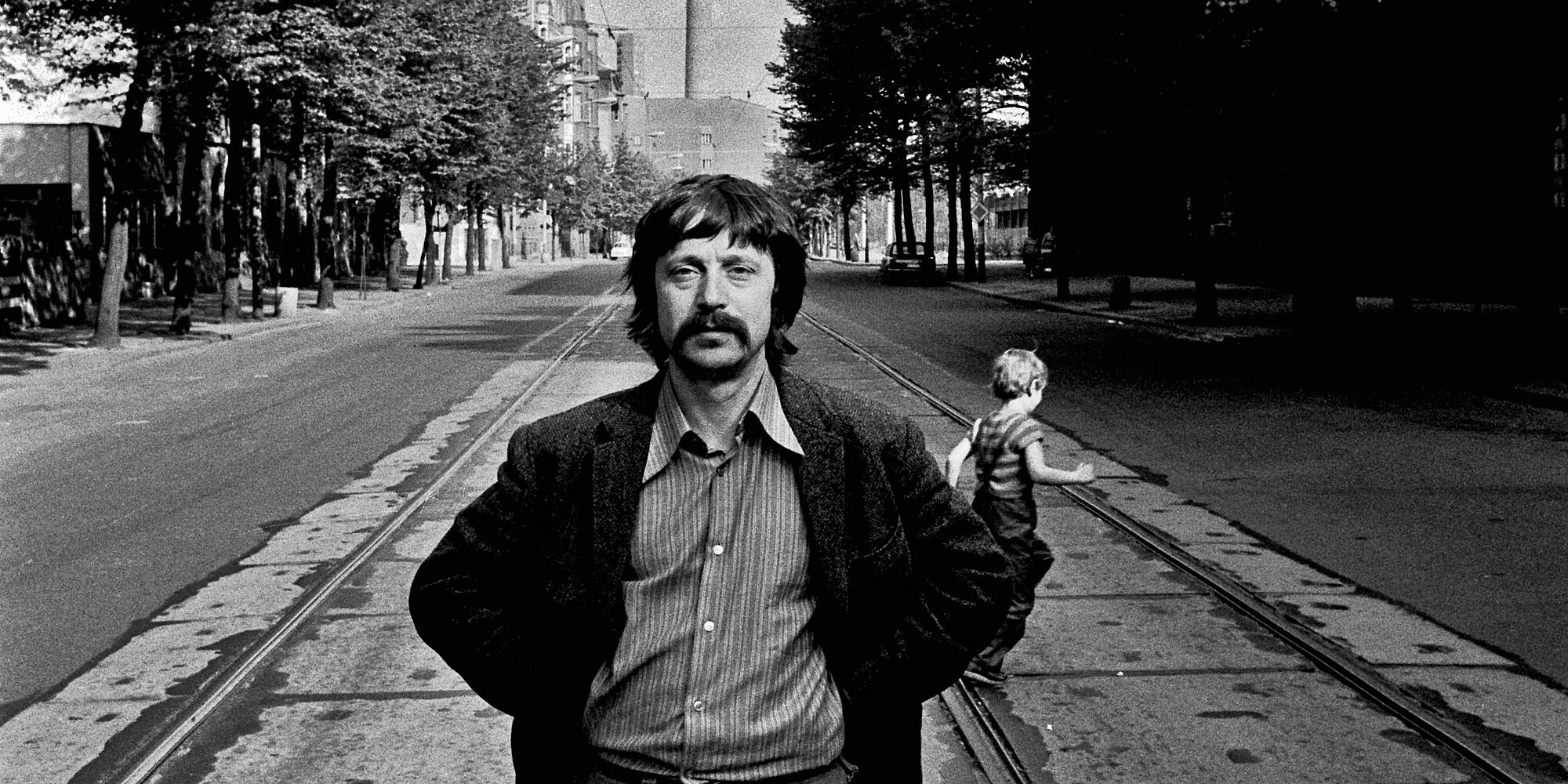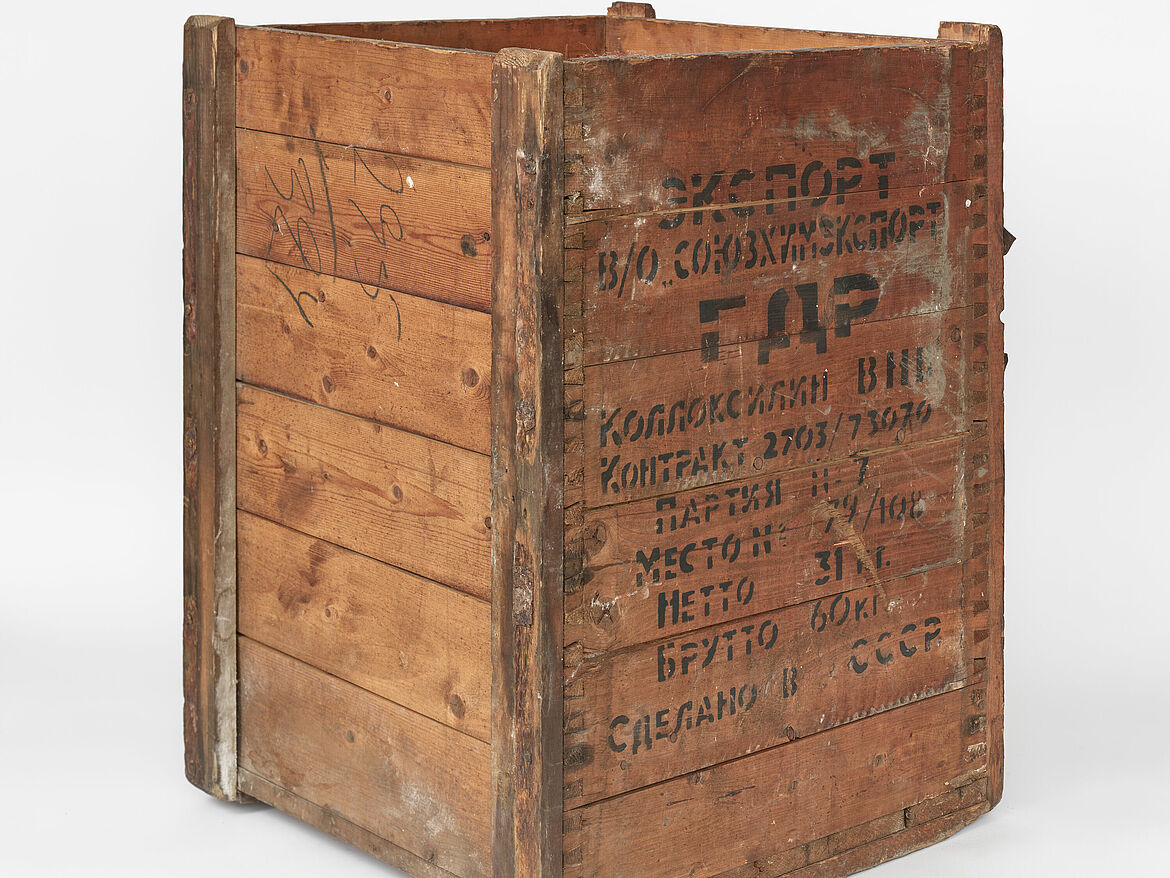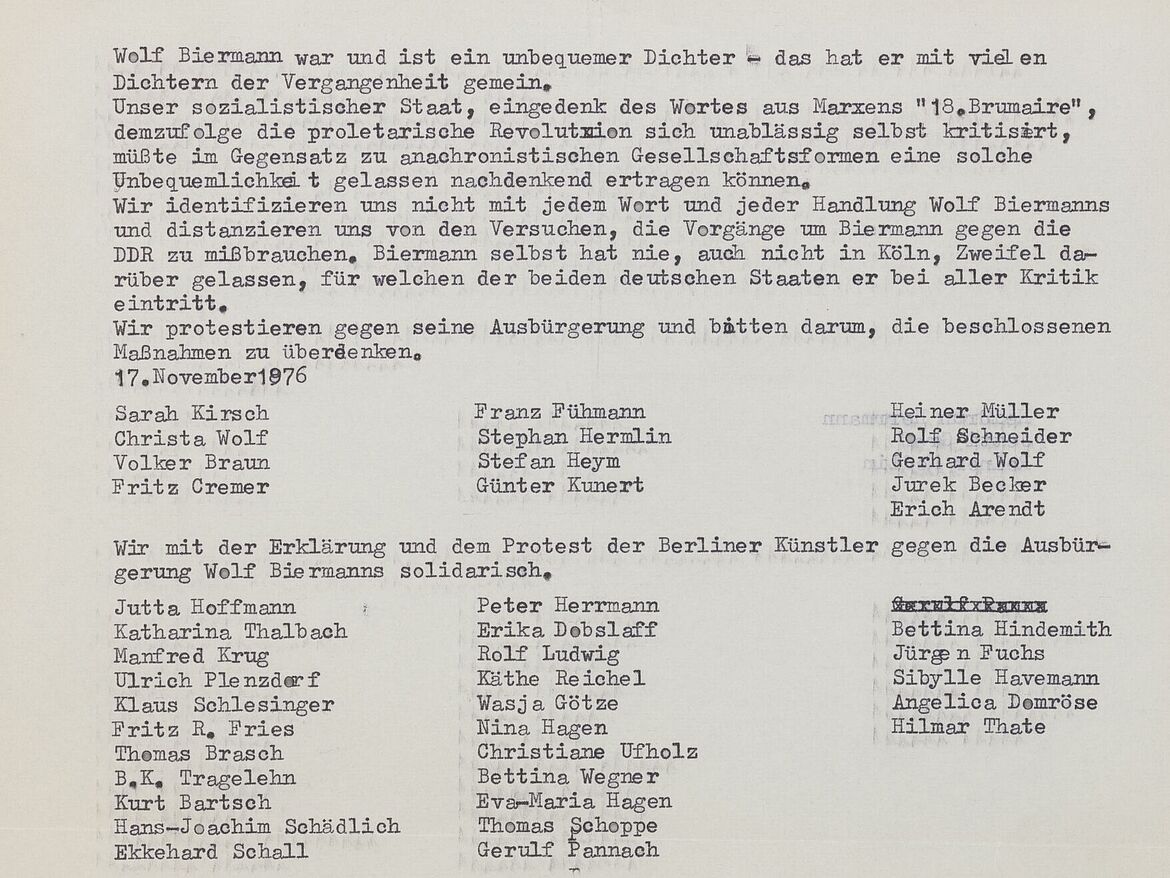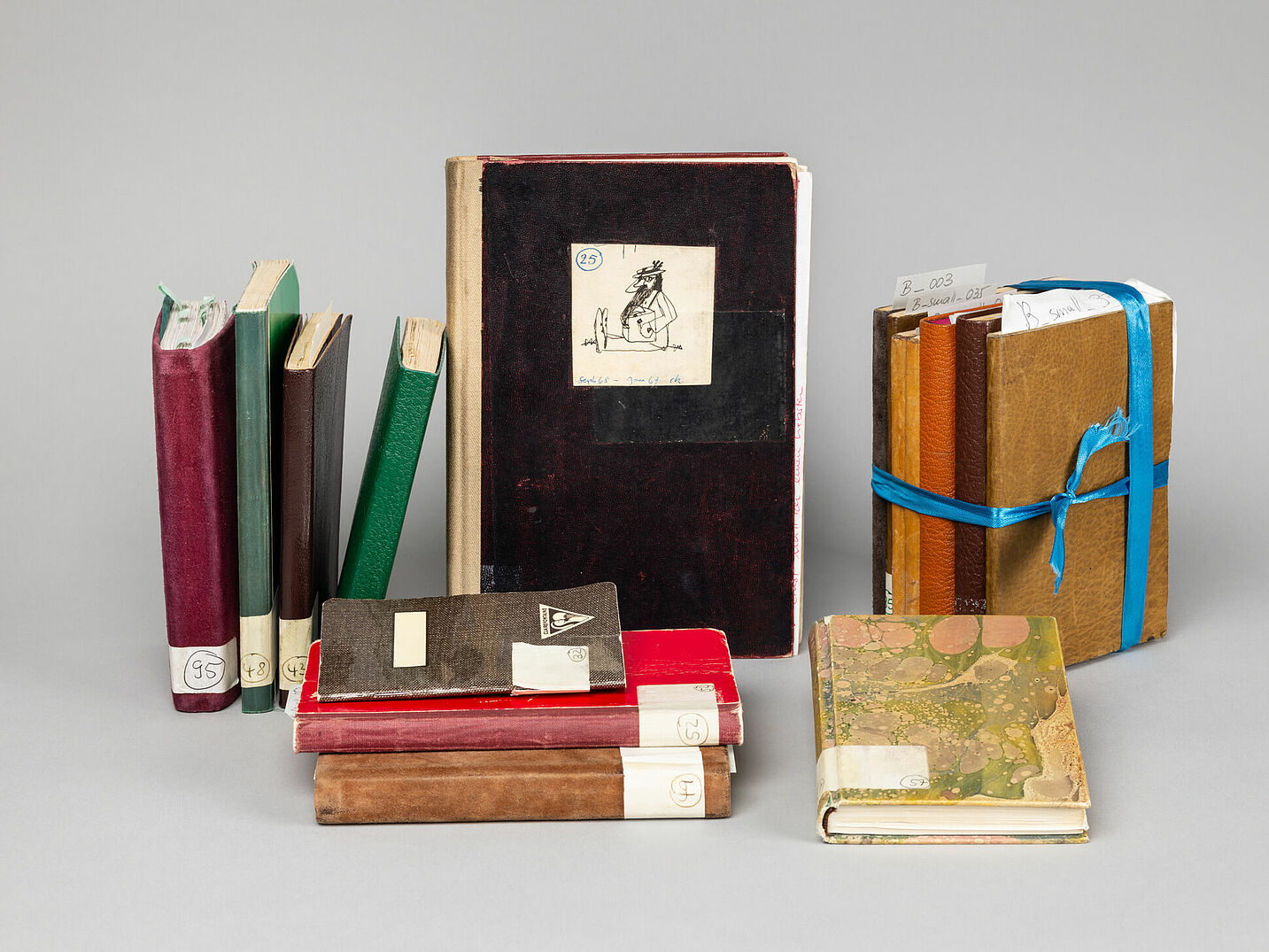Wolf Biermann is one of the most famous songwriters in Germany – East and West. His expulsion from East Germany in 1976 was a political turning point and an admission of helplessness on the part of the SED party leadership. Unlike less well-known artists in the GDR, Biermann had become too popular to put him in jail and too unpredictable to let him perform in public.
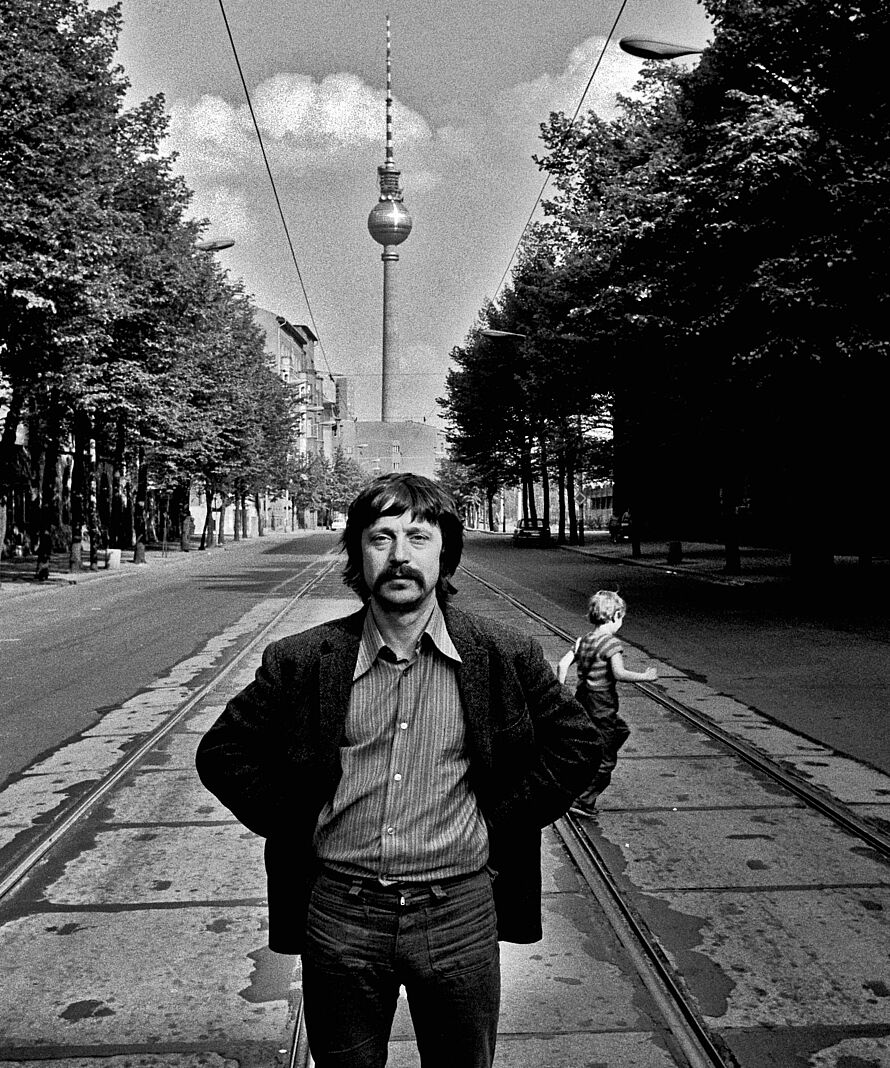
Wolf Biermann at the Oranienburger Straße in Berlin, 1975
© Thomas Höpker / Agentur Focus, Hamburg

Wolf Biermann at the concert in the Cologne sports arena, 13 November 1976
Barbara Klemm/Frankfurter Allgemeine Zeitung © Frankfurter Allgemeine Zeitung GmbH, Frankfurt/Main. All rights reserved.
Many of his songs, ballads and poems have outlasted the original circumstances of their making. “Warte nicht auf bessre Zeiten” (Don’t wait for better times), “Ermutigung” (Encouragement), “Ballade vom preußischen Ikarus” (Ballad of the Prussian Icarus) have become classics. The exhibition presents the life and work of the poet and songwriter interwoven with the events of “German-German” history.
